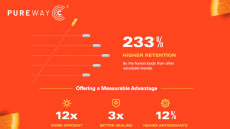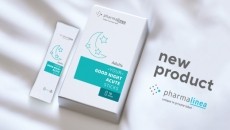Vitamin D deficiency may indicate prostate cancer

The study, published in the Clinical Cancer Research journal, suggested an association between the diagnosis of aggressive prostate cancer and the spread of the disease, particularly in African-American men.
“In African-American men, vitamin D deficiency was associated with increased odds of prostate cancer diagnosis on biopsy. In both European-American and African-American men, severe deficiency was positively associated with higher Gleason grade and tumour stage,” the researchers wrote.
They said there was a “critical need” for biological markers for prostate cancer due to the low sensitivity of prostate-specific antigen in predicting incidence and aggressiveness of the cancer.
Prostate prognosis
Over a period of four years, the study included 667 men aged 40 to 79 all undergoing their first prostate biopsy following the discovery of abnormal prostate-specific antigen (PSA) and/or following the results of a digital rectal examination (DRE).
Half of the participants were African American, while the other half were European American, all of the participants were tested for serum 25-OH D (vitamin D) levels upon recruitment. Of this total figure 168 men from each group were diagnosed with prostate cancer.
The results showed that average vitamin D levels were much lower in African-American men at 16.7 nanogram per milliliter (ng/ml) when compared to European-American men who averaged at 19.3 ng/ml. The highest level recorded for the African-American participants was 45 ng/ml, while this sat at 71 ng/ml for the European Americans.
The researchers said that skin colour may explain in part this difference, since this can dictate absorption of the vitamin from exposure to the sun.
Participants were grouped according to their vitamin D levels, while other contributing factors such as diet, smoking habits, weight, family history and calcium intake were taken into account in the analysis of the results.
Carcinogenesis interference
The scientists said this link could be due to vitamin D's interference with carcinogenesis - the ‘creation’ of cancer in the body - by inhibiting angiogenesis (the formation of new blood vessels from pre-existing vessels) and cellular proliferation, as well as the promotion of cellular apoptosis (programmed cell death) and differentiation.
“Our work supports the hypothesis that 25-hydroxyvitamin D is a potential biomarker that plays a clinically significant role in prostate cancer, and it may be a useful modifiable risk factor in the disease,” they wrote.
“Additionally, differences in serum 25-hydroxyvitamin D levels may explain ethnic disparities in prostate cancer specific incidence, morbidity, and mortality.”
Source: Clinical Cancer Research
Vol. 20, Iss.9, pp. 2289-2299, doi: 10.1158/1078-0432.CCR-13-308
'Vitamin D Deficiency Predicts Prostate Biopsy Outcomes'
Authors: A. B. Murphy, Y. Nyame, I. K. Martin, W. J. Catalona, C. M. P. Hollowell, R. B. Nadler, J. M. Kozlowski, K. T. Perry, A. Kajdacsy-Balla, and R. Kittles














